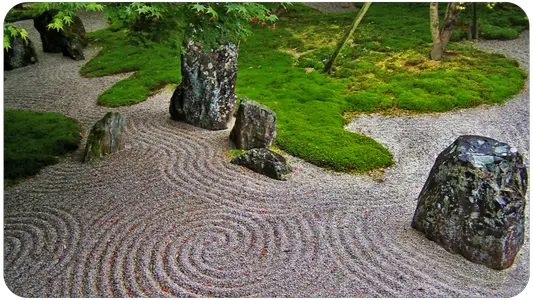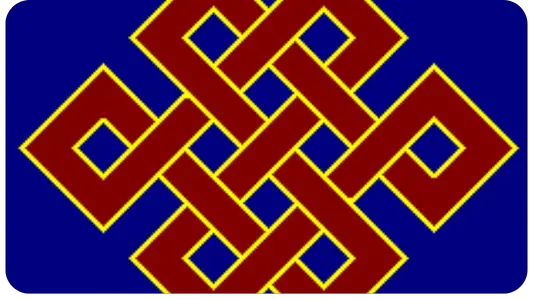Deva (Sanskrit and Pali देव) in Buddhism is one of many different types of non-human beings who share the characteristics of being stronger and living longer than humans.
Synonyms in other languages include Cambodian: tep (ទេព) or Preah (ព្រះ), Burmese: nat , Tibetan: lha, Mongolian: tenger (тэнгэр), Chinese: tiān (天), Korean: cheon, Japanese: ten, Vietnamese: thiên. The concept of deva was adopted in Japan partly because of its similarity to the Shinto concept of kami.
Other words used in Buddhist texts referring to similar supernatural beings are devatā and devaputra (pali: devaputta) meaning son of the gods. It is not clear what distinction there is between these terms.
Attributions. Powers
From a human point of view, the devas share the characteristic of being invisible to the physical human eye. The presence of a Deva can be detected by those humans who have opened divyacakṣus (pali: dibbacakkhu), an extrasensory power with which beings from other planes can be seen.
Their voices can also be heard by those who have developed a similar power for the ears.
Most Devas are able to construct illusory forms through which they manifest their presence [and intentions] to beings in the lower worlds; some Devas even do this among themselves.
Devas don't need the same kind of food as humans, though lesser devas do eat and drink. The brighter they shine, the greater their inner brightness.
Devas are able to travel long distances quickly and even fly through the air, although lesser devas (sometimes) only achieve this through magical aids such as a flying chariot.
Types of Devas
The Devas are grouped into three classes according to which of the three dhātus or realms of the universe they were born in.
The Devas of Ārūpyadhātu have no physical form or location, they dwell in meditation on formless subjects. They achieve this by attaining advanced levels of meditation in another life. They do not interact with the rest of the universe.
The deva of Rūpadhātu have physical forms, but they are asexual and passionless. They dwell in a large number of heavens (realms) or Deva worlds that rise, layer upon layer, above the earth.
Kāmadhātu Devas have similar physical forms, but larger than those of humans. They have the same kind of lives as humans, though these lives are longer, in general, and they live it with more content, indeed, sometimes these lives are immersed in pleasures. This is the realm where Māra has the greatest influence.
Each of these groups of Deva-worlds contain varying degrees of Devas, but all Devas within one group are able to interact and communicate with all the others. On the other hand, the lower groups have no direct knowledge of the existence of all the higher types of deva.
For this reason, some of the Brahmā have become proud, imagining themselves to be the creators of the worlds in which they are and of all the worlds below them (because they existed before these worlds existed).
Devas versus gods
Although the word Deva is generally translated in the West as god; (or, very occasionally, angel) , Buddhist Devas differ from the gods and angels of other religions in several important ways.
Buddhist Devas are not immortal. They live for very long but finite periods of time, ranging from thousands (at least) to billions of years. When that time passes, they are probably reborn as a different kind of Deva, something human or something beyond our comprehension.
Buddhist Devas do not create or form worlds. They are born based on their past karma and are just as subject to the natural laws of cause and effect as any other being in the universe.
Buddhist devas are not incarnations of some archetypal deity or all-encompassing manifestation of the pantheistic One. Nor are they merely symbols. They are considered to be, like humans, distinct physical persons with their own personalities and paths in life.
Buddhist devas are not omniscient. Their knowledge is inferior to that of a fully enlightened Buddha, and they especially lack awareness of other beings in their higher worlds.
Buddhist devas are not omnipotent. Their powers tend to be limited to their own world, and they rarely interfere in human affairs. When they do, it is usually through silent counselling rather than physical intervention.
Buddhist Devas are not entirely moral. Devas of the Rūpadhātu worlds lack human passions and desires, but some of them are capable of ignorance, arrogance and pride.
Devas of the lower Kāmadhātu worlds experience the same kinds of human passions, including (in the lowest of these worlds) lust, jealousy, and anger. These imperfections in the mental and moral realms cause them to be reborn in these worlds.
Buddhist Devas should not be considered a Buddhist refuge. While some deva beings may be beings of great moral authority and prestige and thus worthy of great respect, no deva can show any way of escape from saṃsāra or the control of one's rebirth. The highest honours are reserved for the three jewels of Buddha, Dharma and Sangha.
Confusion with the Devas
Mahayana or Vajrayana meditation and practices include several types of being, which are often called deities, but are distinct from devas:
Bodhisattva: a Bodhisattva may be a Deva in a particular lifetime, but Bodhisattvas are not essentially Devas, and if they happen to be Devas it is only because they were born in many different worlds over time.
A Bodhisattva is just as likely to have been born as a human or an animal, and is distinguished from other beings by the certainty that eventually, after several lifetimes, the Bodhisattva will be reborn as a Buddha.
Yidam: These meditating deities sometimes take the form of ordinary Devas and sometimes appear as manifestations of a Bodhisattva, but in all cases they must be regarded as manifestations of an enlightened spirit.
Buddha: A Nirmāṇakāya Buddha (physical manifestation of Buddha) is ranked higher than a Deva, so Buddha is not a Deva because the conditions necessary to attain supreme enlightenment do not exist in Deva worlds.
A Sambhogakaya Buddha has the form of a Deva of very high rank, but does not exist with the universe and is not subject to birth and death as all Devas are. Dharmakaya is beyond all worlds and limitations.





